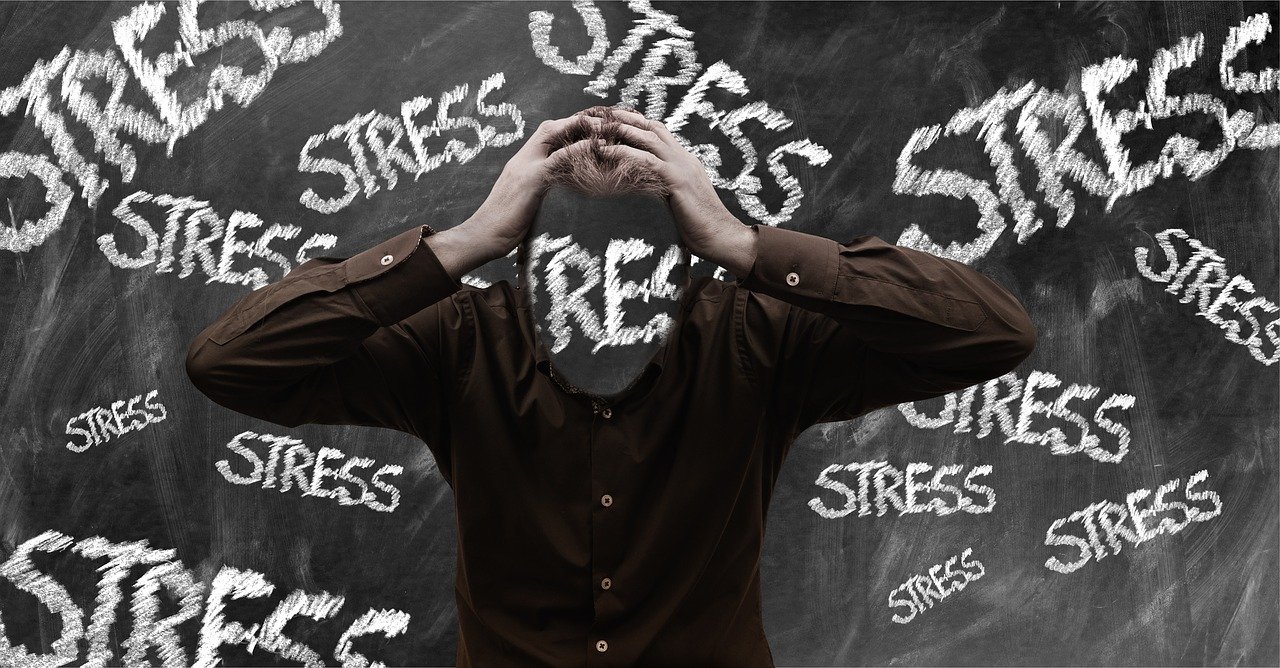Feeling stress is not bad; it can get us up and moving. It can make us perform better as athletes, help us avoid bad situations, tune into our inner wisdom more acutely and save us from being run over by a car, which is helpful!
Psychologists know this type of reaction as the “fight or flight” response, and as humans, we’ve been experiencing this long after the need to run away from dinosaurs and other wild animals. Although, that can still happen today!
Our bodies release hormones during the fight or flight response, enabling us to be alert, tuned in, and aware of our surroundings. The problem is that when we become exposed to stress for long periods, our bodies continue to be vigilant and produce those hormones and reactions. This stress is when the stress response becomes a problem.
When suffering from stress, it helps to know precisely which type of stress you are dealing with.
Types of Stress
There are primarily 3 types of stress:
Acute Stress
Acute stress is the kind of stress when dodging an oncoming truck. We need this kind of stress response to get away quickly. This type of stress is acute because it is sudden and sharp. People often report, “My heart was pounding” or “I feel like my heart is in my mouth.”
It might feel a bit frightening when your body’s responses seem so out of control, but it is not bad for you, nor will it cause you any harm.
Some people love this kind of stress and seek it out by pursuing daring sports activities. They thrive on it. Other people don’t enjoy it at all.
Within moments of experiencing this type of stress, the body returns to normal. The heartbeat regulates, and the breathing slows down again to a regular pace. If this does not happen and a person is traumatized by this event, then acute stress moves to what is known as severe acute stress. Some people know this as PTSD or post-traumatic stress disorder.
Severe stress can cause issues over the longer term, like sleeping problems, being agitated, jumping at the slightest sounds, and other mental health issues.
Episodic Acute Stress
Episodic stress is the same as acute stress but occurs episodically. The police might feel this as sometimes police can be involved in stressful situations throughout the week. Regular people going through a tough time can also experience it. Like a divorce, a bereavement or a change of job, or even moving homes.
Over time this can cause stress-related illness, and people suffering from this should not ignore episodic acute stress over the longer term.
Chronic Stress
If you have been subject to stress over sustained periods, you might start to suffer from the effects of chronic stress. Chronic stress impacts your health in significant ways.
Stress can impact your health in the following ways:
- cardiovascular disease
- anxiety
- diabetes
- depression
- high blood pressure
- lowered immunity
The points above are a shorthand for other more severe issues. For example, anxiety can include more life-changing styles of behaving like OCD, generalized anxiety disorder, and panic disorder, to name a few. High blood pressure can lead to strokes and heart attacks, and diabetes can be a platform for many other serious illnesses.
There are solutions, so the best approach is to take action before you lose heart. If you think your stress symptoms are severe, you might want to visit your doctor.
In the following paragraphs, we’ll outline some ways of dealing with these types of stress to avoid problems later on and manage stress in your daily life.

Find Out What is Causing You Stress
A lot of people suffer from stress and also live in stressful situations. Over the last two years, the pandemic has caused many people to stress over and above the things that can cause people to feel overly stressed.
Living without adequate support, living in poverty, worrying about money, dealing with death, caring for people who are ill, moving, starting new jobs, losing a job, and living in an abusive home situation, the reasons are endless. Your stressors might be easy to find, but you might not even be aware of others.
You might find it easier to write down the things that stress you out. This way, you won’t leave anything out.
You could be experiencing physical symptoms of the stress you are enduring already.
Some of them include but are not limited to:
- Chronic pain in the body
- Sleep issues, such as trouble falling asleep or waking too early.
- Increased appetite or loss of appetite
- Constant tiredness and fatigue
- Being unable to concentrate
- Tearfulness
- Agitation
- Phobias or obsessions about your health
- Isolation
- Decreased interest in other people and activities
- Weight gain or loss
- Headaches
- Food cravings
- Ulcers
There are ways to handle your stress.
It is unrealistic to think that you could live a life without stress, even chronic stress. Life is full of curveballs and challenges; it is just the way life is. Sometimes it can seem as though all of the curved balls in the world are hitting you at once, and you struggle to overcome challenges life throws at you. But, the good news is that you can still manage and reduce stress.
The key is you cannot remove stress, but you can reduce the impact that stress will have on your health and mind.
It is one of those scenarios where you have to be disciplined and decide to make changes. The rewards will be incredible.
Here are some of the best stress relief techniques that will help you significantly improve your life:
Get Active
You might read that title and start to stress more, but getting active can mean different things to different people. If you walked for only 10 minutes a day, it would positively impact your health. It is ten minutes you were not doing before.
Other forms of positive activity include gardening, walking, doing the housework, stretching, swimming or weightlifting. Anything that gets you moving can change your brain chemistry and the hormones released into your body. It can also make you feel like you are in control again in small ways, which has significant results.
Eat Well
During stress, dieting is not a good idea; this puts your body under more pressure. The best approach is to decide to increase vegetables, increase lean protein, and reduce processed foods and sugars. You can still eat starchy foods in moderation if you try to shed a few pounds. You can eat more to bulk up a little if you have lost weight.
Try swapping out starchy food for whole grains like brown rice instead of white and wholewheat bread instead of white. Eating tons of vegetables also increases your food’s nutritional value, and nutrition always helps in times of stress.
If you find it hard to prepare food daily, you can prepare in bulk or cook for two days in one go.
Avoid Harmful Stress Relievers
When people are under stress, they are more likely to drink more alcohol, smoke more, or eat poorly. Find out where your bad habits are and attempt to reduce them. You can’t change everything at once, but you can chip away at bad habits.
Too much caffeine will increase your anxiety levels, and there are loads of herbal teas and coffee substitutes. Try and limit your caffeine to three cups a day.

Meditate
We are not talking about sitting cross-legged on the floor, although many find this very relaxing. There are many ways to meditate. Suppose you love gardening; that is a form of meditation. Allowing yourself the space to plant flowers or mow the lawn can undoubtedly bring your mind into focus. Perhaps you like sewing or painting; that too is a form of mediation.
Other forms of meditation include reading a book, chatting to a good friend, and watching a TV series you love. It is all about allowing your mind to be in that moment instead of thinking about stressful things. The moment you think about stressful things is when your body goes into stress mode, and the ill effects occur.
Deep breathing can help with stress, and so can you visualize yourself working out any problems positively.
Have a Good Laugh
Laughter is the best medicine. A good laugh can release those feel-good hormones making you feel better. Hang out with your funniest friends or family members.
Watch comedies, tell jokes, and read comic magazines or books.
It is a gift to be able to laugh at yourself, and now you might see why! It can be a natural propensity to watch more dramatic programs on TV or dwell on more profound things when we are stressed out, but what we need to do is lighten up, literally!
Don’t Isolate or Disconnect
When we are not feeling right, the first thing we can often do is hibernate. When we stop answering the phone or door, it is time to turn around and take the bull by the horns.
You can start little, enjoy a phone call with a family member, progress to zoom meetings, and meet in person.
Being with the right people can lift our spirits and renew our bodies. If you struggle to find people to hang out with, join a charitable group. Sometimes helping other people stops us from focusing on ourselves, which is excellent. If volunteering is not your thing, join a particular interest group. Many meet in person and online for convenience. The main point is to feel better.
Find Your Boundaries
It is amazing how being able to say no and not feel bad can lead to good mental health. Start to become aware of people or situations you don’t feel comfortable around. Knowing what stresses you out is what this is all about, so once you know the who’s and how’s, you can start to remove them, at least temporarily for some and maybe forever for others.
Boundaries are healthy, and you do not need permission to erect them. Your inner gut will tell you when your limits are side-walled upon, and that gut feeling will feel like stress!
Get Enough Sleep
Try to go to bed each night at a specific time and get up at the same time each morning. If you cannot go to sleep, that is fine, but always get up at a similar time each day. This habit will teach your body when it is time to rest.
Make sure your home lighting is set to very low a good few hours before bed, and have a specific time you brush your teeth and wash your face. The body is funny; it seems to understand actions as preludes to what is to come. Getting enough deep sleep is the real goal. So do not worry if you do not hit the minimum of 7-9 hours. Some people do very well on less; you will know if this is you or not.
If you are tired all day, more rest is needed.
Keep a Journal
Writing down your feelings helps. It helps more if you are very descriptive about how you feel. It is a form of letting go when you can express how you feel. Your feelings are valid, and this is a way of sharing them in private.
The great thing about journaling is that you can look back and see how you felt days earlier and if there have been any shifts or changes. All challenging periods do come to an end. Your goal here is to release those emotions, so there is no correct way to do it; just doing it is essential.
Also read: How To Get Your Life Together | The Ultimate 12 Steps Guide
Allowing our feelings to be released is a therapy in itself, and if you can do that for yourself, you will be doing well to keep harmful hormones from flooding your body. If you want to, you can set aside a half-hour of therapy and use this time to write and think about all of the feelings troubling you. Try it for a week and see if you notice a difference. You can gather great insights into your life and your thoughts if you do this.
Once your therapy writing hour is over, don’t think about things again until the next time you are due for your writing therapy.
Get Talk Therapy
If you feel you need more help, seek out a good counselor. Good therapists can help you spot where your stress is coming from and guide you to deal with it more effectively. Therapy is worth its weight in gold, and a good therapist is even more so.
You might find one straight away, or you might have to search a little for the right fit. Avoid challenging therapies if you are very stressed; learning coping skills would be more effective over the short term.
The Reason Why These Tips Work
One of the main stress hormones released during difficult situations is cortisol. Cortisol is a good hormone when we need it. It helps our body deal with difficult situations. When the stress situation is over or prolonged, too much cortisol can cause adverse health issues.
The methods discussed above are proven to reduce cortisol successfully, and this is what your aim is. These suggestions are not band-aids but are significant factors in managing stressful situations.
If you feel you need additional help, your doctor will be able to prescribe appropriate medications to assist you. However, these activities can also aid in recovery from any of mentioned types of stress.
_ _ _ _ _
For more tips, hacks and tools feel free to explore our Blog. Whether you want to start living with purpose, learn how to organize your life, or get more tips for personal growth – Living Life Our Way gives you a growing collection of helpful articles!

